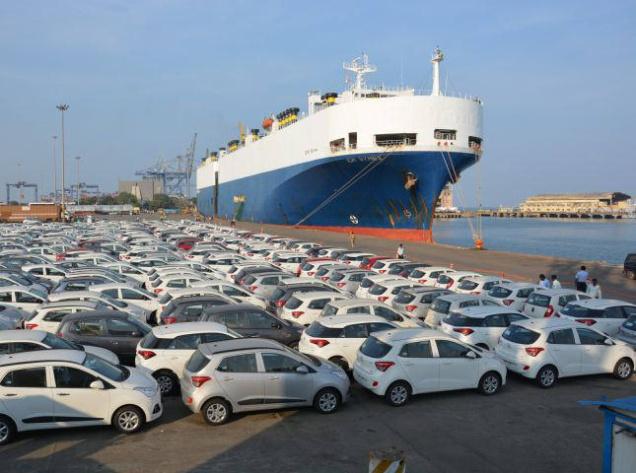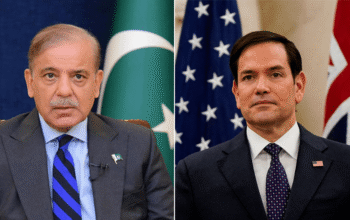By Staff Reporter
ISLAMABAD: Pakistan will lift restrictions on commercial imports of used vehicles up to five years old starting in September, Finance Minister Muhammad Aurangzeb told a parliamentary committee on Friday.
The move, tied to an International Monetary Fund (IMF) condition, is part of a tariff strategy to phase out overprotected sectors and aims to boost competitiveness in the auto industry while making imported vehicles more accessible to the middle class.
The policy marks a major shift in Pakistan’s trade regulations, which currently bar commercial imports of used vehicles, even those just a month old. By July 1, 2026, the age limit for importing used cars and other vehicles will be entirely eliminated, though strict quality standards will remain in place.
Aurangzeb detailed the changes during a meeting of the Senate Standing Committee on Finance and Revenue, chaired by Senator Saleem Mandviwalla. Though not on the committee’s original agenda, he outlined a four-year plan to align tax treatment for used and new vehicles.
From the first quarter of the new fiscal year (July-September), commercial imports of used vehicles up to five years old will be permitted, subject to a 40% regulatory duty on top of existing duties and taxes applied to new vehicles.
This 40% regulatory duty will be phased out gradually over the coming years, reducing to 30% in 2026, then 20% in 2027, and further down to 10% in 2028. It is scheduled to be fully eliminated by July 1, 2029. By 2029, there will be no restrictions on importing any type of used vehicles, including heavy bikes. Commerce ministry officials said a notification enabling the initial phase will be issued by September.
The policy is set to reshape Pakistan’s auto industry, long shielded from foreign competition. The government expects the influx of used imports to push domestic manufacturers to improve quality and cut prices. For consumers, it could mean greater access to affordable imported vehicles, a market currently out of reach for many due to high duties on new cars.
At present, new car imports face steep tariffs, but these will shrink over the next five years under ongoing reforms, capping at 15%. The phased reduction of duties on new vehicles will sync with the gradual removal of extra regulatory duties on used ones, leveling the playing field.
The decision reflects Pakistan’s efforts to meet IMF demands tied to a $7 billion bailout secured in 2023. The IMF has pressed Pakistan to dismantle protectionist barriers in sectors like autos, arguing they hamper competition and growth. Facing muted growth, a weakening rupee, and rising debt, Pakistan has leaned on the fund to stabilise its economy, agreeing to reforms like tariff adjustments in return.
While age limits will vanish by 2026, imported vehicles, new or used, must still meet environmental and quality standards, commerce ministry officials said. Under current Baggage Rules, overseas Pakistanis can import cars up to three years old and other vehicles up to five years old under schemes like Transfer of Residence and Gift, provided they’ve lived abroad for at least 700 days. It’s unclear if the new 40% regulatory duty will apply to these imports.
Stakeholders are split on the move. Auto industry players worry that used imports could squeeze local manufacturers already grappling with high costs and supply chain woes. Consumer groups, however, see it as a win for affordability and choice.
“This is a step in the right direction,” ruling party Senator Anusha Rahman said during the meeting. “It will bring much-needed competition to the market and help consumers access better-quality vehicles at lower prices.”
Copyright © 2021 Independent Pakistan | All rights reserved




